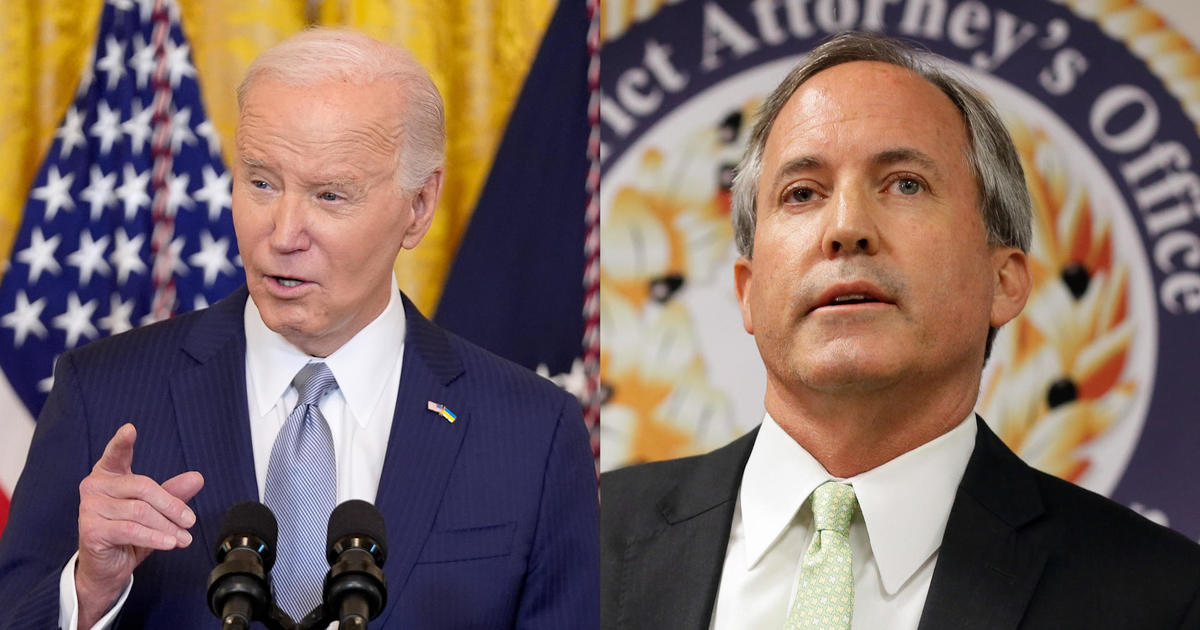Sixteen Republican-led states are taking legal action to block a federal program that has the potential to grant nearly half a million immigrants without legal status, who are married to U.S. citizens, a pathway to citizenship. This coalition, led by Texas Attorney General Ken Paxton, filed a lawsuit on Friday to halt the program initiated by President Biden in June. The court filings argue that the administration bypassed Congress in creating this pathway to citizenship for what they claim are “blatant political purposes.”
The lawsuit states, “This action incentivizes illegal immigration and will irreparably harm the Plaintiff states.” Under the policy, which began accepting applications on Monday, spouses without legal status can apply for “parole in place,” which grants permission to stay in the U.S., apply for a green card, and eventually pursue a path to citizenship. However, the program has sparked controversy in an election year where immigration is a major issue, with many Republicans criticizing the policy as a form of amnesty for individuals who have violated the law.
Attorney General Paxton expressed his concerns about the program violating the Constitution and exacerbating the illegal immigration crisis affecting Texas and the country as a whole. The lawsuit, filed against the Department of Homeland Security, DHS Secretary Alejandro Mayorkas, and other Biden administration officials, accuses the agency of attempting to grant parole to spouses on a mass scale, which the states argue is an abuse of power.
Florida Attorney General Ashley Moody also voiced opposition to the parole in place policy, alleging that the Biden administration is using “parole” unlawfully to advance an open-borders agenda. A spokesperson for the White House assured that the administration would vigorously defend the policy, emphasizing that the focus should be on assisting American families and addressing the broken immigration system.
In response to the legal challenge, a spokesperson for the Department of Homeland Security defended the policy, stating that it is grounded in established legal authority and aligns with fundamental American values by enabling families of U.S. citizens to live without fear of separation. To qualify for the program, immigrants must have resided continuously in the U.S. for at least 10 years, not pose a security threat, have no disqualifying criminal history, and have been married to a citizen by June 17th, the day before the program was announced.
Applicants are required to pay a $580 fee and complete a comprehensive application, including an explanation of why they deserve humanitarian parole and a substantial set of supporting documents demonstrating their length of stay in the country. The applications are submitted to the Department of Homeland Security, and if approved, individuals have three years to pursue permanent residency with the ability to obtain work authorization during this period. The administration estimates that approximately 500,000 individuals could be eligible, along with around 50,000 of their children.
The DHS spokesperson affirmed that the agency will continue to receive and process applications under the program. Prior to this initiative, obtaining a green card for individuals in the U.S. illegally after marrying a U.S. citizen was a complex process that often required them to return to their home country for an extended period, with no guarantee of reentry.
Overall, the program aims to provide a more streamlined pathway to citizenship for spouses of U.S. citizens who are currently in the country without legal status. Despite the legal challenges and political disagreements surrounding the policy, the Biden administration remains committed to defending the program and its objectives.
In conclusion, the legal battle over the federal program designed to grant a path to citizenship for immigrants without legal status who are married to U.S. citizens reflects the ongoing debate and divisions on immigration policy in the United States. As the lawsuit progresses, the outcome will have significant implications for the individuals seeking legal status through this program and for the broader immigration landscape in the country.
Contributed by Camilo Montoya-Galvez.









